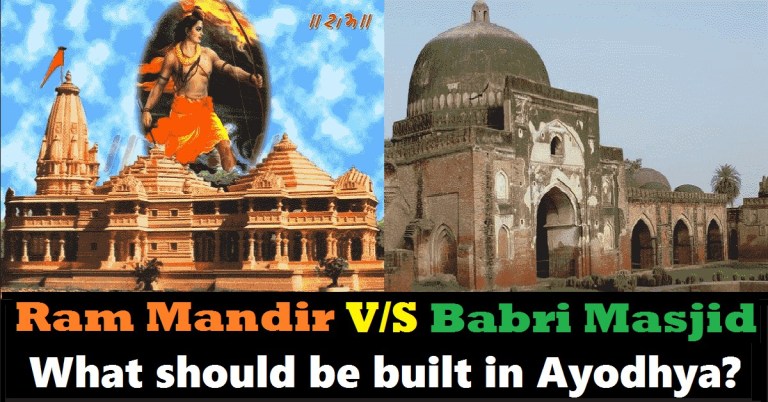Remembering Sir Syed Ahmad Khan on his Birth Anniversary : A True Champion of the Educational and Social Renaissance of Indian Muslims!
Like, Share, Comment, & Support… be the voice of Free Press!
By Maham Abbasi, Copy Edited By Adam Rizvi, New York, TIO:
“Post-ghadar (revolt), I was not disappointed by the looting of my house and the loss of
belongings. I was disturbed due to the ruination of my qaum,”. “I gave up the idea of
migration and decided to struggle for the rebuilding of the qaum.”
Sir Syed Ahmad Khan
Sir Syed Ahmad Khan, a true champion of the Educational and Social Renaissance of Indian Muslims, whose AMU is celebrating its centenary, believed that a community, caught in obsolete and superfluous mores and customs, needed to empower itself through modern education and scientific understandings.
His most remarkable contribution to the field of education is establishing the Madarsatul Uloom in Aligarh in 1875, now known as the Aligarh Muslim University, a premier educational institution of the country that has produced myriad of freedom fighters, poets, writers, scientists, thinkers, politicians rebuilding India through the Modern Age.
His calling on Muslim education was not limited to this alone — he wanted to form a network of educational institutions managed by Muslims and founded the All India Muslim Educational Conference. He wanted the Muslim community to embrace the new ideas that had reformed Europe and dreamed of modeling his Muhammadan Anglo-Oriental College on Oxford and Cambridge. The Movement that shaped generations of Muslims in India, his Aligarh Movement stirred the entire community into action. Sir Syed Ahmad Khan wanted MAO College to act as a bridge between the old and the new systems. He said “a true Muslim is one who must have the Holy Quran in one hand and the science in the other.” He went on and established schools at Muradabad in 1859 and Ghazipur in 1863. He also founded a scientific society in 1864.

Also, Read : The Horror Of Hathras
Although Sir Syed did real work in the modernization of the Indian Muslim community, the orthodox Muslims opposed him strongly. A Maulvi once went all the way to Mecca to fetch a fatwa against him. But none of this ever consumed Sir Syed and he continued to fight the irrational interpretation of many religious decrees. Sir Syed was a torch-bearer of Hindu-Muslim unity who perceived India as a beautiful bride and Hindus and Muslims as its two sparkling eyes, even though he was accused of being biased and communal. Sir Syed suggested Muslim’s to remain passive in national politics because he knew the educational backwardness of his community would at the end lead them astray, so he focused all his attention on educational upliftment of the Muslim world in the Indian sub-continent. His thoughts were “emancipatory”,”democratic” and “progressive” in nature. He held that the western form of democracy and nationalism would not operate in India. He was one of the first thinkers who laid the foundation of the secular nature of Indian governance present today.
Way before the cow worshippers began using violence in the name of cow protection; Sir Syed had opposed the slaughter of cows and counseled Muslims to respects the sentiments of Hindus and use goat and sheep to slaughter on Eid-al-Adha. AMU has welcomed students from different religions, backgrounds, and places since its inception, its first graduate being a Hindu—Ishwari Prasad.
Also, Read : The Agriculture Bill 2020

Unquestionably, he was the ‘champion of education’ and a great thinker, he thought beyond his times. The contemporary Muslims did not accept him so and compelled him to act like a regular man. He was forced to dance and beg for grants and funds for the development of MAO College. A great leader, who always struggled for the upliftment of Muslims in the field of education and economics as well as for the bright and glorious future of their children, was treated in such a manner while the only intentions he had was the upliftment of Muslims in its true sense. What he was doing, was for the betterment of his community also one of the largest communities in the world. He foresaw the imperative need for Muslims to acquire proficiency in the English language and modern sciences if the community were to maintain its social and political identity. He released two journals to this end — The Aligarh Institute Gazette, which was an organ of the Scientific Society, and the Tehzibul Akhlaq, known as the Mohammedan Social Reformer in English. He also observed that education can only improve the worsening economic condition of the Muslims in India. He even tried to modernize and update the Madarasa’s, and their syllabus according to the need of the hour.He majorly wanted the Muslim community to believe in themselves, know what they are capable of, their responsibilities, their behavior, etiquette, and more than anything the power of education to uplift their lives. He wanted to imbibe a sense of self-esteem in all of us and that was the reason he also started reviving and promoting the Urdu language. Sir Syed always wanted the Muslims to be proud of their identity and not to escape from it. This vision of Sir Syed is still largely preserved in the hostels of Aligarh Muslim University, now that is the charm of its founder and the brilliance of his personality that its shine has not been reduced. His ideologies are very clearly seen in his ‘Chaman’ and its Students.

He started educational and social reforms for the Muslims and was a hero of democratic ideals and freedom of speech. In one of his essays he wrote, “Freedom of expression is the right of everyone… Suppression of opinions, be it for any religious fear, or the fear of community and tribe or the fear of being defamed, or the fear of the government – is very bad” Sir Syed always recognized the cause of modern education and the development of one’s scientific temper, but he considered this overall education to be completed parallel to the individuals’ character building.He considered proper knowledge of Islam and the Quran to be crucially important. He sensed the need, accordingly to re-examine the foundations of the Islamic faith. He also claimed the right to re-interpret the Qur’an and the traditions in the light of modern occurrences.
Also, Read : Republican Senators Tested Positive for the Coronavirus Could be “Wheeled In” to Vote for Amy Coney Barrett

If there has to be one thing beautifully proven for Muslims through Syed Ahmad’s character and life stories, it is the sense of worth and self-respect, otherwise rare at that time amongst the Indian Muslims. Sir Syed pursued new hope for regaining some of the moral ground lost since 1857.
Sir Syed recognized education as the principal mover of modernization, advancement, and development alongside a great emphasis on keeping uninjured the community’s own distinctive cultural identity and grounds. He equally balanced the importance of character building with learned education. His movement also aimed at introducing social reforms among Indian Muslims. Sir Syed condemned polygamy and the ban on widow remarriage in society.
He tried to make the community aware of the magnificent past and feel proud of the great civilization with such a rich collection of culture and tradition. Sir Syed’s famous speech at the foundation of MAO College which was laid down by Lord Lytton on 18th January 1877 is the soul of this institution. Sir Syed said: “from the seed which we sow today, there may spring up a mighty tree, whose branches, like those of the banyan of the soil, shall in their turn strike firm roots into the earth, and themselves send forth new and vigorous saplings”. Today we all know that Sir Syed’s words are hence proved by the institution which sees itself as a place of learning, imparting knowledge without any discrimination based on caste, creed, or religion.
Also, Read : Mahatma Gandhi’s 151st Birth Anniversary Celebrated
By 1870, Sir Syed began to work towards social reform. The striking contrast between the English and Indians in their social behavior, which he had noted during his trip to England, had left him upset and thinking. Therefore, upon his return, he founded The Tehzib al-Akhlaq (“Refinement of Morals or Social Reformer”) In the Tehzib, he donned the role of “a born moralist” who would never tire of expatiating on what people should do and should not -discussing such basic things as a civilization, education, and training, women’s status and rights, female and child education. He condemned in unremitting terms the anti-social customs and corrupt practices, the harsh treatment of the

womenfolk, prejudice and reactionism, flattery and hero-worship, and superstition and legendary beliefs, prevalent in the Muslim society at the time.
He delineated on such basic things as how to eat and dress, and behave in society, what to take from the civilized nations, and what to leave. Sir Syed was a great enthusiast of Western culture, and he exhorted Muslims to become “civilized”, both materially and intellectually. He argued Islam being a true religion could not possibly be against civilization unless certain unsound ideas and customs had got completely mixed up with its principles. The remedy lay in discarding all those accretions and customs that, having crept into Islam over the centuries, had hamstrung the progress and development of the community.
Also, Read : Women : The True Protectors of Mother Earth!
Also, Read : COVID 19 and Gender Equality : Women’s Unpaid Domestic Labor
Maulvi Abdul Haqq said about Sir Syed Ahmad Khan. He says “people say – Sir Syed founded a college. No, he did not only establish a college but revived a nation, developed the concept of nationality, breathed the interest of education in dead hearts, decorated all aspects of life, and enlightened them. He looked at knowledge, literature, ideology, language, politics, journalism, and religion with a liberal outlook. He did his best to fulfill the needs of time and made every effort to nullify negative thoughts and false ideas, and guided us towards rationalization and research which we have forgotten in the obedience of old age culture and tradition”.

Sir Syed was holding the wheel of the Muslim community at that time, he would have diverted the craft anywhere but he put it on the road of education and social renaissance. My mother, Fauzia Rehman, an alumni of the prestigious university, recalls her favorite saying of Sir Syed, “Call me by whatever names you like. I will not ask for your salvation. But please take pity of your children. Do something for them, send them to the school.” He believed that it is only education that has the power to break any shackle and huddle of misery. It has the power to enlighten the minds of the people who can then think about good and bad and take care of themselves.
The university that today stands tall in Aligarh has not come into being on its own, but it took the hard work and dedication of this Renaissance man Sir Syed Ahmad Khan to emerge. The renaissance which comes due to education is safe, etched on a stone for infinity and beyond because it is the renaissance of one’s mind. That is why it is unaltered and effective. We all as humans and a community should live his dream forever.
Compiled and Curated By Maham Abbasi.




